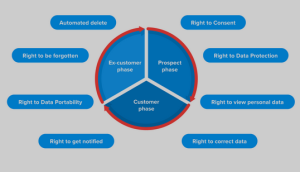Corporate mergers and acquisitions (M&A) can have significant effects on market competition and consumer choice. This analysis will delve into ways corporate mergers/acquisitions on market competition and consumer choice impact the market.

Corporate Mergers/Acquisitions On Market Competition And Consumer Choice
Table of Contents
ToggleImpact on Market Competition:
- Market Concentration:
- Mergers and acquisitions can lead to increased market concentration, especially if significant players in an industry combine forces. Higher concentration may reduce competition, potentially resulting in market power for the merged entity.
- Reduced Number of Competitors:
- Consolidation through M&A often results in a reduction in the number of competitors in a particular market. Fewer competitors may lead to less aggressive pricing and innovation.
- Barriers to Entry:
- Mergers can create higher barriers to entry for new competitors. Established companies may have enhanced resources and economies of scale, making it more challenging for new entrants to compete effectively.
- Price Effects:
- In some cases, a merger may lead to higher prices for consumers due to reduced competition. With fewer players in the market, there may be less pressure to keep prices competitive.
- Innovation Impact:
- Competition often drives innovation as companies strive to differentiate themselves. Mergers may reduce this competitive pressure, potentially impacting the pace and extent of innovation in the industry.
- Regulatory Scrutiny:
- Antitrust authorities closely monitor mergers to prevent anti-competitive behavior. If a merger is deemed to substantially lessen competition, it may face regulatory challenges or require conditions to be met before approval.
Impact on Consumer Choice:
- Product and Service Variety:
- Mergers can affect the variety of products and services available to consumers. If companies offering different products merge, there may be a reduction in the range of choices available.
- Brand Consolidation:
- Mergers often lead to brand consolidation. While this can create efficiencies, it may also mean that consumers have fewer distinct brands to choose from in the marketplace.
- Quality of Service:
- Changes in ownership through M&A can influence the quality of service. If the acquiring company has a different approach to customer service, it may impact the overall experience for consumers.
- Market Innovation:
- A reduction in competition resulting from M&A may impact the level of innovation in the market. With fewer players, there may be less motivation for companies to introduce new and groundbreaking products or services.
- Customer Loyalty Programs:
- Mergers can lead to changes in customer loyalty programs and incentives. For example, if two merging companies had different loyalty programs, the consolidation may affect the benefits available to consumers.
- Geographic Availability:
- M&A may influence the geographic availability of products and services. The merged entity might prioritize or de-prioritize certain markets, affecting the choices available to consumers in different regions.
- Price Sensitivity:
- Changes in market dynamics resulting from M&A may affect price sensitivity. With reduced competition, consumers may have less leverage to negotiate or seek lower-priced alternatives.
While mergers and acquisitions can create synergies and operational efficiencies for companies, they require careful consideration of their potential impact on competition and consumer choice. Regulatory bodies play a crucial role in evaluating these transactions to ensure that they do not harm the competitive landscape and that consumers continue to benefit from a diverse range of choices at competitive prices.
